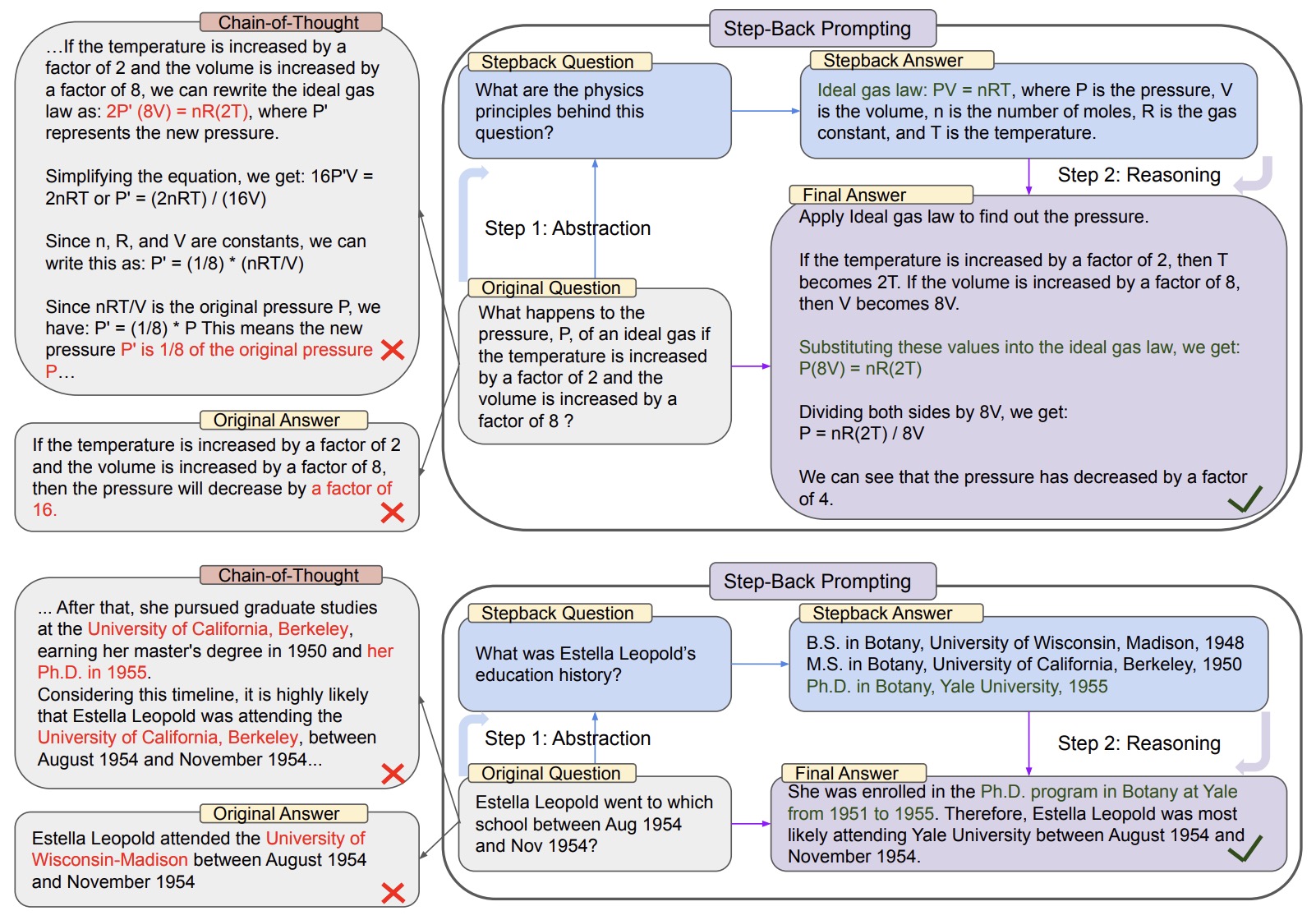Strategic Step Back Prompting: Enhancing LLM Outputs with Smarter Queries
 Yogyashri Patil
Yogyashri Patil

What is Step Back Prompting?
Step Back Prompting in Retrieval-Augmented Generation (RAG) involves rephrasing a user’s specific query into a broader, more generalized question before initiating the search process. By taking a moment to "step back," the system can better discern the user's underlying intent, retrieve more comprehensive and contextually relevant knowledge chunks, and subsequently generate an answer that is precise and well supported. This method significantly reduces ambiguity and minimizes hallucinations, resulting in outputs that are both accurate and insightful.

Step Back Prompting is an effective strategy designed to guide a language model (such as GPT or Gemini) to first abstract the core essence of a task before attempting to solve it.
The approach can be likened to saying:
"Hold on. Don’t rush to solve this right away. First, identify what type of problem we’re dealing with."
Rather than immediately presenting the model with a complex or detailed query, Step Back Prompting encourages a preliminary step: asking the model to rephrase, summarize, or generalize the problem into a broader context. By focusing on the underlying concept first, the model gains a deeper understanding, leading to more accurate, contextually relevant, and well-grounded solutions.
Why Use Step-Back Prompting?
Handling Ambiguous User Queries
Reducing Errors in Complex Problem-Solving
Preventing Hallucinated Responses
Enhancing Creative Problem-Solving
Enhancing Creative Problem-Solving
Facilitating Better Knowledge Retrieval in RAG Systems
How step back prompting work ?

Code Implementation
1. Import Required Libraries
pythonCopyEditimport openai
import os
# Set your OpenAI API key
openai.api_key = os.getenv("OPENAI_API_KEY")
2. Define Helper Functions
pythonCopyEdit# Function to reframe the query
def step_back_prompt(query):
step_back_instructions = (
"Reframe the following specific question into a broader, more general question. "
"Think about what type of problem it is trying to solve:\n\n"
f"Specific question: {query}\n\n"
"Broad, general question:"
)
response = openai.ChatCompletion.create(
model="gpt-4",
messages=[{"role": "user", "content": step_back_instructions}],
temperature=0.7,
max_tokens=100,
)
return response["choices"][0]["message"]["content"].strip()
# Function to generate the final answer
def generate_answer(broad_question, original_query):
reasoning_instructions = (
"Use the broader question to provide context and then answer the original query.\n\n"
f"Broad question: {broad_question}\n"
f"Original query: {original_query}\n\n"
"Final answer:"
)
response = openai.ChatCompletion.create(
model="gpt-4",
messages=[{"role": "user", "content": reasoning_instructions}],
temperature=0.7,
max_tokens=300,
)
return response["choices"][0]["message"]["content"].strip()
3. Implement Step-Back Prompting
pythonCopyEditdef step_back_prompting_workflow(user_query):
# Step 1: Generate a broader question
print("Step 1: Reframing the Query")
broad_question = step_back_prompt(user_query)
print(f"Broader Question: {broad_question}\n")
# Step 2: Generate the final answer
print("Step 2: Generating the Final Answer")
final_answer = generate_answer(broad_question, user_query)
print(f"Final Answer: {final_answer}")
return final_answer
4. Example Usage
pythonCopyEditif __name__ == "__main__":
# User's specific query
user_query = "What are the key AI advancements made by Tesla in March 2025?"
# Execute the Step-Back Prompting Workflow
print("User Query:", user_query)
print("="*50)
step_back_prompting_workflow(user_query)
This approach demonstrates the power of Step Back Prompting in action, guiding the model to produce more thoughtful, well-grounded responses.
conclusion
Step-Back Prompting is a powerful approach to handling complex questions by emphasizing abstraction and context. By guiding the model to first generalize the problem and then refine the answer, it enables more thoughtful, accurate, and insightful responses, especially in nuanced or multi layered queries.
Subscribe to my newsletter
Read articles from Yogyashri Patil directly inside your inbox. Subscribe to the newsletter, and don't miss out.
Written by
